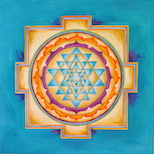SEROTONIN
That some substances that constrict our blood vessels arrive in our blood, was first noticed by the German anatomist as early as the 19th century. The same was noticed by an Italian pharmacologist in 1930 who called this substance “enteramine“. Then, in 1948, one Italian and two Americans reaffirmed the substance and called it serotonin.
However, when we allow it, this stunt courier cheers us up. It gives us a sense of calm, inner peace and relaxation.
This little courier lives naturally in all living things.
Also, everyone who talks about cooking or blogging about chocolate knows that feeling of… happiness.
When it happens that this hormone does not walk so often through our cells and the windows of the blood vessels, then we get depressed, aggressive, anxious (we measure every little thing) and we usually start visiting the fridge and drawers more often, especially the ones where we keep chocolates.
And we don’t go bananas so easily.
Chocolate and cocoa, of course, do not contain serotonin, but tryptophan, through which this “happiness hormone” is excreted.
One professor of organic chemistry at the University of Berlin has expressed himself that, although there is much more of that tryptophan in eggs than in chocolate, none of his boiled eggs at breakfast has so far evoked a feeling of happiness like chocolate.
Whether all about tryptophan is true, whether the cause of our happiness after a piece of chocolate or a whole chocolate is just a large amount of carbohydrates, fats and proteins in such a small place, or is chocolate just our psycho-mental best friend, we will leave to the researchers who themselves feel good after a piece or two of chocolate to find out.
The myth that chocolate makes “real lions in bed” is unfortunately just a myth. However, the biggest fantasies play in the head, not in the tryptophan and chocolate, or theobromine and cocoa.
Massages with chocolate and cocoa are known, however, because cocoa beans promote cell growth in the skin and act against wrinkles (one of the studies at the faculty in Münster, Germany).
What the German in the 19th century and his colleagues probably did not know yet about serotonin is that it moisturizes our eyes, rejuvenates our muscles, soothes our heartbeats, relieves our pain.
They probably didn’t even know that serotonin is there to keep us warm when it is cold and vice versa, to put in order our sleep and wakefulness, and that before darkness, serotonin actually becomes melatonin (this substance is secreted by the small organ in the middle of our head that responds to light and darkness, see more on this page under “beta waves”). Most likely, at the time, they were also unaware that unlike any other courier, a serotonin courier can sometimes also deprive our desire for another dessert, sex.





